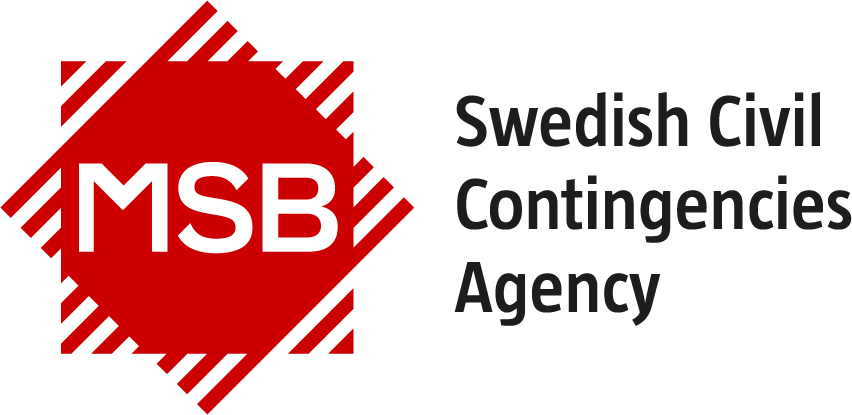Basics of home preparedness
Devise a plan detailing how to maintain access to water, food, communication and heating in your home for at least a week.
You may need to adapt to your household's specific needs and circumstances. Is there anything else you or your loved ones require in a typical week?
When you are prepared, society at large can focus on helping those who have the most difficulty coping on their own. If you ordinarily require special assistance, you are also entitled to assistance during a crisis; however, the level of service may vary, and it may take longer to receive.
Test your abilities
Seven days is a scenario based exercise with learning and practical tips.
Download or order in print at no cost
Seven days is a scenario based exercise with learning and practical tips.
The digital exercise is only available in Swedish
Prepare with others
In the event of a crisis or war, we must all help one another. If you know your neighbours, it will be easier to co-operate and help each other. By joining an association or voluntary defence organisation, you can make a difference.
Checklist
Here are some useful things to have at home in the event of a societal crisis. Also think about what you could share, and what you may be able to borrow from each other.
- Radio powered by batteries, solar panels or winding mechanism.
- Torch and headlamp with extra batteries.
- Bottles and cans of clean water.
- Food that does not require refrigeration or freezing. Food that can be eaten directly or cooked without water.
- Stoves and fuel. Use preferably outdoors.
- Sleeping bags, blankets and warm clothes.
- Matches, candles, tea lights.
- Kerosene lamp and fuel, such as lamp oil or kerosene. Remember to have adequate ventilation.
- Alternative heat source fuelled by kerosene, LPG, diesel or wood.
- Home pharmacy, such as first aid kits, wound care, any essential medicines.
- Hygiene items, such as wet wipes, hand sanitiser, nappies and sanitary towels.
- Extra batteries, charged power banks.
- Cash, in case payment cards stop working.
- List, on paper, of phone numbers for family, relatives, neighbours, hospital, municipality, emergency services, energy provider.
Home preparedness questions and answers
-
What do you want me to do?
It’s good if you:
- Familiarise yourself with various types of crises – and how they can affect you and your family.
- Have at least a week's worth of home preparedness supplies, enabling you to function during a crisis or war.
- Stay alert when it comes to the spread of fake news and rumours.
-
I can’t store a week’s worth of home preparedness supplies. What should I do?
Do what you can! Even something small can mean everything in a crisis. Focus on a few simple things:
- Get a cheap radio that runs on batteries, so you can always listen to the news.
- Keep some extra food at home that has a long shelf life and doesn't require cold storage. Choose things that you and your family usually eat.
- Write down your most important phone numbers and post them in a readily accessible place.
- Fill some bottles or cans with water.
- If you use prescription medicine, you will often be able to pick up a month’s supply.
- Get to know your neighbours. It makes it easier to work together. Join forces for things that may be a bit more expensive and that you can share.
- Order the brochure “In case of crisis or war” from MSB. It contains additional affordable tips.
- Learn from someone close to you who has experienced events like war or a natural disaster.
-
Isn't 72 hours the deadline?
72 hours has been used in information from government authorities in the United States and Canada, as well as from numerous municipalities and organisations in Sweden.
In 2020, the Swedish government announced a defence policy decision recommending that private individuals prepare for one week on their own. Since 2024, we used the phrase “at least one week”, but 72 hours is, of course, better than nothing.
-
What happens after a week?
It’s not possible to say, exactly. But over the course of one week, society has had time to gather its resources and manage the situation as far as possible.
-
Why do I even need to prepare?
You need to prepare because Sweden's preparedness relies on everyone – government authorities, non-profit organisations, the private sector and individuals – taking responsibility and contributing. If you can take responsibility for yourself and your family, you should do so. Then you will not be a burden on society, as there are others who will require its support.
If you currently require special assistance, you are benefitted when others have prepared themselves and can manage on their own, so that you can continue to receive assistance.
-
Can't society take care of me?
In Sweden, we are used to most things functioning normally, such as electricity, water, transport, shops and payments. But in the event of a crisis or war, you need to be prepared that not everything will be available to everyone at the same time. Aid will be provided to those who need it most.
Government authorities and organisations will do everything they can to improve the situation as soon as possible. There are plans in place to deal with different kinds of events, but you also need to be prepared – and we all need to work together.
If you feel worried
We live in a time of threats that can create anxiety and worry. The krisinformation.se website provides support for coping with your concerns.
